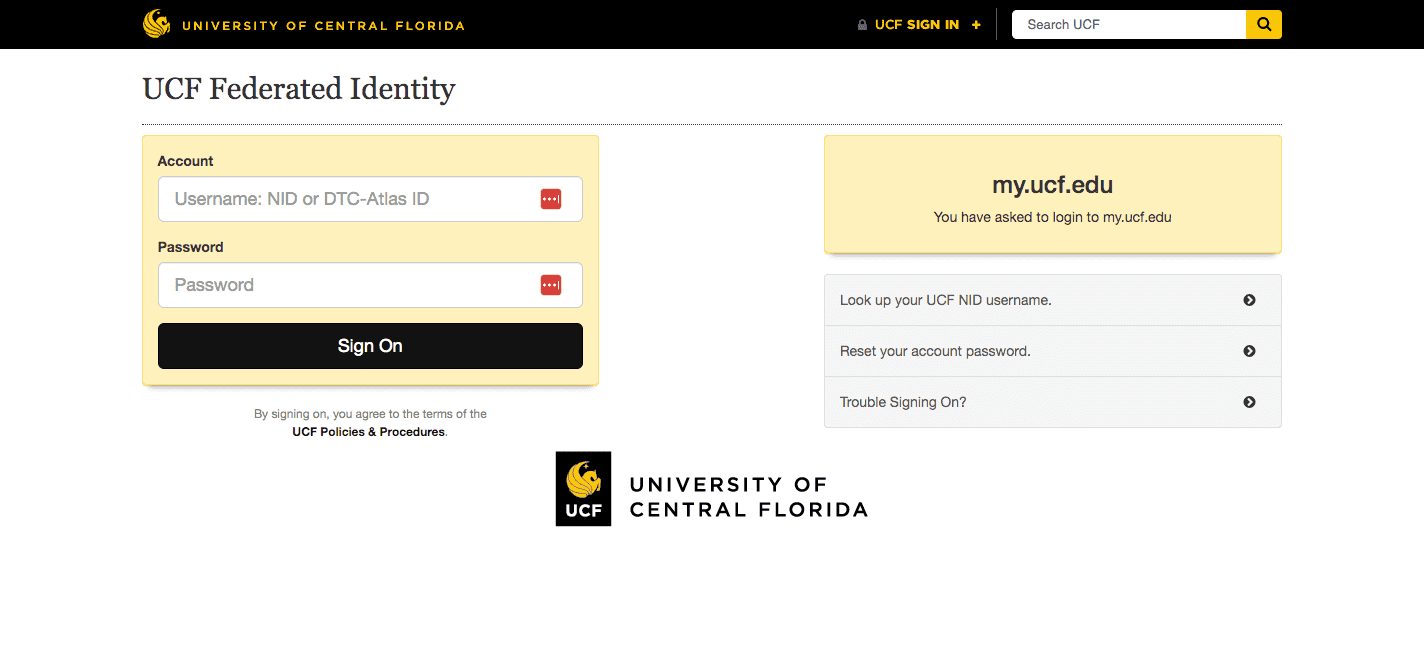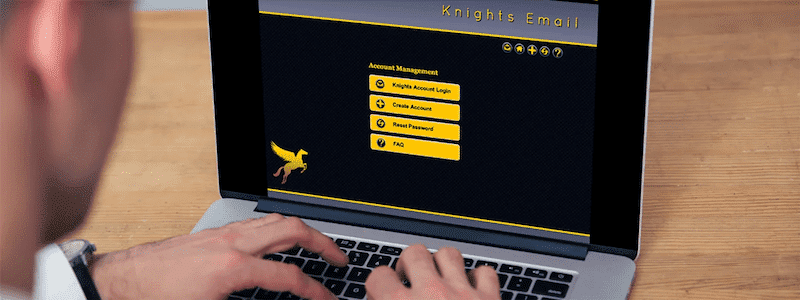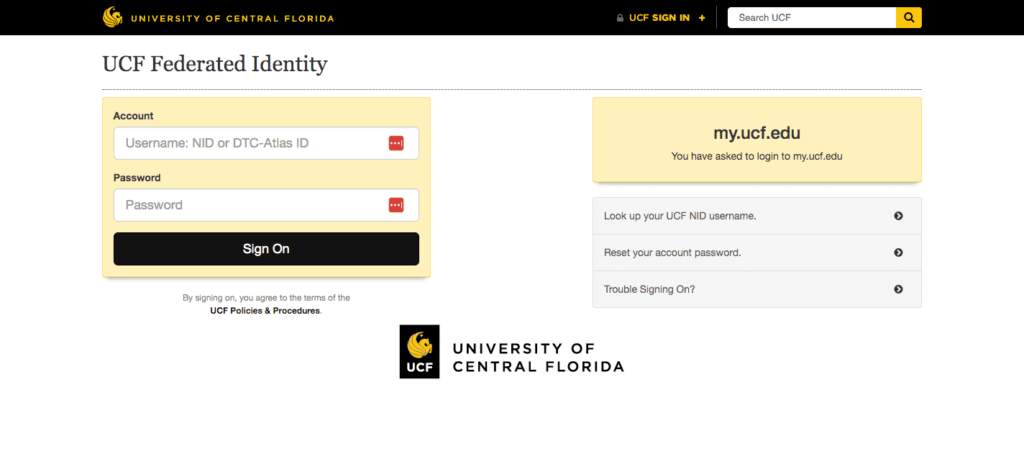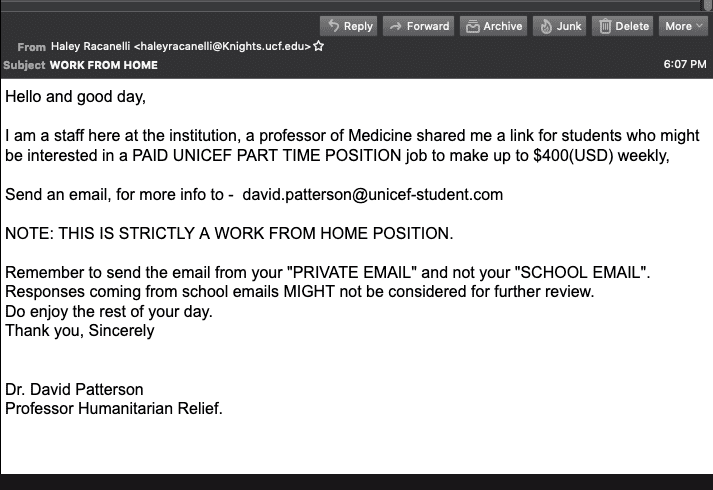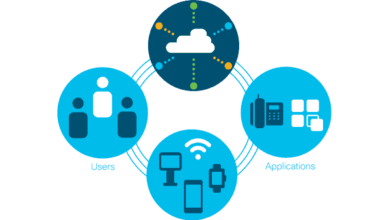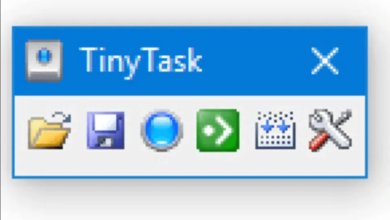UCF Email: A Comprehensive Guide for Students
In today’s fast-paced academic environment, having a reliable and efficient email service is crucial for success. UCF email services are designed specifically to cater to the communication needs of students, faculty, and staff at the University of Central Florida.
UCF email services offer two types of accounts: student accounts and faculty/staff accounts. Student accounts are provided through Knights Email, which is powered by Microsoft Office 365, while faculty and staff accounts are hosted on the UCF Exchange server. Both types of accounts offer a range of features, including ample storage space, calendar integration, and access to the suite of Microsoft Office applications.
Having a UCF email account is essential for members of the university community. One of the primary benefits of using UCF email over other email services is the seamless integration with the university’s online resources and systems. This allows students to receive important updates regarding their courses, academic progress, and financial aid, while faculty and staff can efficiently communicate with colleagues and stay informed about university news and events.
Some common questions and concerns about UCF email include how to access the account and set up forwarding. Accessing your UCF email account is simple: students can log in to Knights Email through the Microsoft Office 365 portal, while faculty and staff can access their accounts through the UCF Exchange server. If you wish to forward your UCF email to another account, both types of accounts offer easy-to-follow instructions on setting up email forwarding.
The importance of using UCF email cannot be overstated. According to the UCF IT department, an average of 2 million emails are sent and received every day within the university community. This staggering statistic highlights the vital role that email plays in the daily lives of UCF students, faculty, and staff.
How to set up UCF email account and login to it
Having a UCF email account is essential for students, faculty, and staff at the University of Central Florida. Not only does it provide a seamless communication platform within the university community, but it also grants access to important university communications, resources, and online services.
Account Setup
- Navigate to the UCF email portal at [UCF email portal URL]. For students, this will typically be the Knights Email portal provided by Microsoft Office 365. Faculty and staff should visit the UCF Exchange server login page.
- On the portal page, look for the account creation or sign-up link. Click on it to begin the process of creating your UCF email account.
- Fill out the required fields, which may include your name, date of birth, UCF identification number, and other personal information. Make sure to enter accurate details to avoid any issues during the account activation process.
Account Activation
- Upon completing the account setup, you will receive a confirmation email to the alternate email address that you provided during the registration process. Open this email and click on the provided link to verify and activate your new UCF email account.
- After verifying your account, you will be prompted to create a password. Choose a strong and unique password to ensure the security of your account. Make sure to remember this password, as you will need it to log in to your UCF email account.
Login Instructions
- To log in to your UCF email account, return to the UCF email portal at [UCF email portal URL]. Enter your newly created UCF email address and the password you set during the account activation process.
- Click on the “Sign In” or “Log In” button to access your UCF email account.
Troubleshooting
If you encounter any common issues or errors during the account setup or login process, consider the following solutions:
- Double-check the information you provided during the account creation process for accuracy.
- Ensure that you have entered the correct UCF email address and password when attempting to log in.
- If you have forgotten your password, look for the “Forgot Password” link on the login page and follow the instructions to reset your password.
- Contact the UCF IT Support Center if you continue to experience issues with your UCF email account.
Understanding UCF Email Protocols and Etiquette
UCF email serves as a critical communication tool for students, faculty, and staff within the University of Central Florida community. As such, it’s essential to adhere to proper email protocols and etiquette to maintain professionalism and ensure effective communication.
Email Protocols
Subject Lines
- Keep them concise and relevant to the content of the email.
- Avoid using all caps, as it may come across as aggressive.
Greeting
- Address the recipient by their appropriate title and last name, e.g., “Dear Professor Smith” or “Hello Dr. Johnson.”
- If you have an established relationship with the recipient, using their first name is acceptable.
Closing
- Use a professional closing, such as “Best regards,” “Sincerely,” or “Kind regards.”
- Include your full name, title (if applicable), and contact information.
Email Etiquette
Tone
- Maintain a professional and respectful tone.
- Avoid using slang, jargon, or colloquial expressions.
Formatting
- Use proper grammar, punctuation, and capitalization.
- Break the email into paragraphs for easier reading.
- Use bullet points or numbered lists when appropriate.
Sensitive Topics
- Refrain from discussing sensitive or controversial topics via email.
- If necessary, schedule a face-to-face meeting or phone call to address such issues.
UCF Email Policies
Official Email Signature
- Use the UCF-approved email signature, which includes your name, title, department, and contact information.
Spamming
- Do not send unsolicited mass emails or engage in any form of spamming.
Forwarding Email
- Be cautious when forwarding emails containing sensitive or confidential information. Ensure the recipient is authorized to receive the information.
Best Practices
Avoid Abbreviations and Emojis
- Refrain from using abbreviations (e.g., “u” instead of “you”) and emojis, as they can come across as unprofessional.
Proofreading
- Thoroughly proofread your emails for typos, grammatical errors, and clarity before sending.
Respond Promptly
- Aim to respond to emails within 24 hours during business days. If a longer response time is needed, communicate this to the sender.
Tips for managing spam emails in UCF email account
Spam emails can be an annoying and time-consuming issue to deal with. Effectively managing spam emails not only declutters your inbox but also helps protect your account from potential security threats. This guide will provide you with five practical steps to manage spam emails in your UCF email account.
1. Common Types of Spam Emails
Spam emails come in various forms, some of which include:
- Unsolicited promotional emails
- Fraudulent messages attempting to obtain personal information (phishing)
- Emails containing malware or viruses
These spam emails can end up in your UCF email account through a variety of ways, such as your email address being collected from public websites, shared with third parties, or obtained from data breaches.
2. Actionable Tips for Managing Spam Emails
Set Up Email Filters
- Configure your email filters to automatically sort and move suspected spam emails to a designated folder, such as the “Junk” or “Spam” folder.
- Regularly review the contents of these folders to ensure no legitimate emails are incorrectly flagged as spam.
Unsubscribe from Unwanted Emails
- Look for the “unsubscribe” link in promotional emails and follow the instructions to remove yourself from the mailing list.
- Be cautious when unsubscribing, as some malicious emails may use this tactic to confirm the validity of your email address.
Report Spam Emails to UCF Email Administration
- Forward any suspicious or spam emails to the UCF email administration team (provide contact information) to help them identify and block potential threats.
3. Be Cautious with Unknown Senders
Opening emails from unknown senders can pose security risks. Follow these guidelines to spot suspicious emails:
- Check the sender’s email address for inconsistencies or unexpected domain names.
- Look for grammatical errors, unusual formatting, or a sense of urgency in the message content.
- Avoid clicking on links or downloading attachments from unknown senders.
Frequently asked questions about UCF email services
Q: What is a UCF email?
A: A UCF email is the official email account provided by the University of Central Florida for students, faculty, and staff. It is used for university-related communications, accessing online resources, and connecting with the UCF community.
Q: How do I get a UCF email address?
A: To create a UCF email address, follow the step-by-step guide on how to set up and log in to a UCF email account for first-time users.
UCF Email Features and Benefits
Q: What is my UCF Knights email?
A: UCF Knights email is the email service provided to UCF students through Microsoft Office 365. It offers a range of features, such as a large mailbox size, calendar, and access to Microsoft Office applications.
Q: How do I contact UCF?
A: You can contact UCF by visiting the university’s Contact Us page or by sending an email to the appropriate department or staff member using their UCF email address.
Managing Your UCF Email Account
Q: How do I change my UCF email password?
A: To change your UCF email password, log in to your account, go to the account settings, and follow the prompts to update your password. If you have forgotten your password, use the “Forgot Password” link on the login page and follow the instructions to reset it.
Q: How do I set up email forwarding?
A: To set up email forwarding, log in to your UCF email account, access the email settings, and follow the instructions to add a forwarding address. Note that forwarding emails containing sensitive or confidential information is discouraged and should be done with caution.
Q: How do I manage spam emails in my UCF email account?
A: Follow the 5 Practical Steps for Effectively Managing Spam Emails in Your UCF Email Account to keep your inbox organized and secure.
Troubleshooting and Support
Q: I can’t log in to my UCF email account. What should I do?
A: If you are unable to log in to your UCF email account, double-check that you have entered the correct email address and password. If the issue persists, consider resetting your password or contacting the UCF IT Support Center for assistance.
Q: How do I report a technical issue with my UCF email account?
A: To report a technical issue with your UCF email account, contact the UCF IT Support Center by visiting their website or calling them at (407) 823-5117.
Q: Where can I find more information on UCF email policies and regulations?
A: You can find information on UCF email policies and regulations in the UCF Policies and Procedures or by contacting the UCF IT Support Center.
Additional Resources
Q: Are there any video tutorials or guides on using UCF email?
A: Yes, you can find video tutorials and guides on using UCF email by visiting the UCF IT Support Center’s Knowledge Base or by searching for specific topics on the UCF IT Support Center’s website.
Conclusion
In conclusion, we have explored the essential aspects of effectively utilizing and managing UCF email, from understanding its purpose to implementing best practices for communication and security. As a crucial tool for students, faculty, and staff, mastering UCF email is vital for seamless communication within the university community.
Our goal is to empower you with the knowledge and confidence to navigate your UCF email account with ease. By keeping these guidelines in mind and staying vigilant against potential threats, you can maintain professionalism, protect your valuable information, and contribute to a safe and efficient digital environment at the University of Central Florida.
Let this be the catalyst for your journey toward becoming an adept UCF email user. We encourage you to dive deeper into the resources provided, share this information with your peers, and take advantage of the support available to ensure that your UCF email experience is nothing short of exceptional.
Remember, a well-managed email account is the foundation of effective communication—embrace the responsibility, and thrive in your academic and professional endeavors at UCF.

